Question from Russ, a pastor from Idaho, submitted to the Reader’s Perspective forum on Sunday, 6 April 2015:
I would like to know what is your understanding of the Lord’s Supper. Do you understand it only in context of the Passover Seder, or as a separate service also? Do you think it should be taken at Passover only, or it could be also taken at other times, without a Passover Seder context, just as a remembrance of Yeshua’s death?
JP Staff Writer responds:
Dear Russ,
Thank you for your question. From the Gospel accounts it is reasonable to conclude that Jesus’ last supper was a Passover meal. “I have eagerly desired to eat this Passover [lamb] with you” (Luke 22:15). However, the Gospel of John casts some doubt on this conclusion because according to John’s chronology Jesus’ crucifixion coincided with the sacrifices on Passover eve (cf. John 13:1; 18:28; 19:14), which would mean that Jesus’ last supper was not a Passover meal. The reason for this discrepancy appears to be that the author of John’s Gospel wanted to portray Jesus as the ultimate Passover sacrifice (cf. John 1:29: “Behold the lamb of God…!”). In order to make this theological point the author of John tinkered with the actual chronology, stretching the facts a little in order to achieve his theological aims. Historically, Jesus’ last supper probably was a Passover meal.[1]
Paid Content
Premium Members and Friends of JP must be logged in to access this content: Login
If you do not have a paid subscription, please consider registering as a Premium Member starting at $10/month (paid monthly) or only $5/month (paid annually): Register
One Time Purchase Rather Than Membership
Rather than purchasing a membership subscription, you may purchase access to this single page for $1.99 USD. To purchase access we strongly encourage users to first register for a free account with JP (Register), which will make the process of accessing your purchase much simpler. Once you have registered you may login and purchase access to this page at this link:
We hope that helps answer your questions. Another related topic is how Passover continued to be observed in the early Church. For a time, the annual celebration of Jesus’ death and resurrection was directly tied to the Jewish calendar and timing of Passover. But this is a more complicated matter and cannot detain us here.
—JP

If you enjoyed this post, check out these recent JP articles:
- Coordinating Ritual and Moral Purity in the New TestamentTaking another look at how John the Baptist, Jesus, and the Apostle Paul related to issues of ritual and moral purity.
- Two Kinds of Love in the Story of the Paralyzed ManTwo kinds of love operate in the story of the paralyzed man. One kind of love is inclusive and redemptive, the other is exclusive and destructive. Which kind of love will prove victorious?
- Character Profile: BeelzebulGet acquainted with this mysterious and sinister figure.
- What’s Wrong with Contagious Purity? Debunking the Myth that Jesus Never Became Ritually ImpureThe view that Jesus could not be affected by impurity and that Jesus was able to spread his purity to others is based on faulty assumptions and invalid inferences.
- The Seven Types of Pharisees and the Fear of God in the Synoptic GospelsAncient Jewish sources attest to a debate over which motivation for keeping the commandments—fear or love—was most highly to be esteemed. This debate surfaces, among other places, in the Talmudic discussions of the seven types of Pharisees. These seven types and the debate over love versus fear illuminate important aspects of Jesus’ teaching.
- The Sin Against the Spirit: Matt. 12:31-32; Mark 3:28-29; Luke 12:10Jesus’ saying about the sin against the Holy Spirit belongs to developing Jewish ideas regarding the gradation of sin and punishment. It also reflects his high self-awareness.
Or check out some of these titles from the Jerusalem Perspective bookstore:
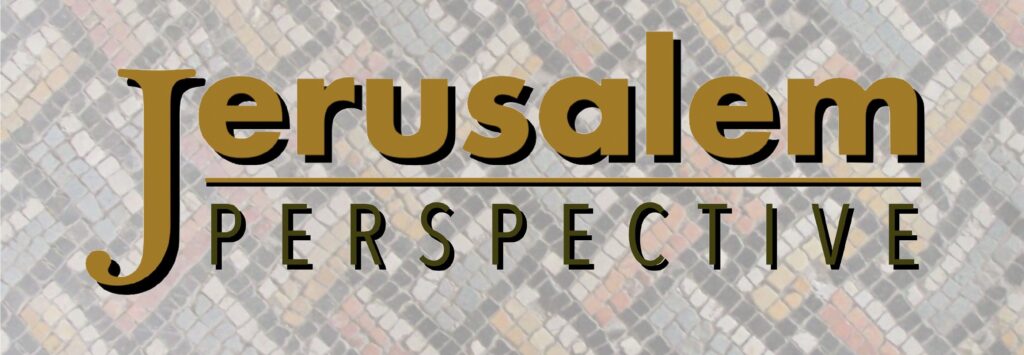
- [1] For further reading on this subject, see R. Steven Notley, “Jesus and the Essene Passover,” Jerusalem Perspective (2003) [https://www.jerusalemperspective.com/4429/]. ↩

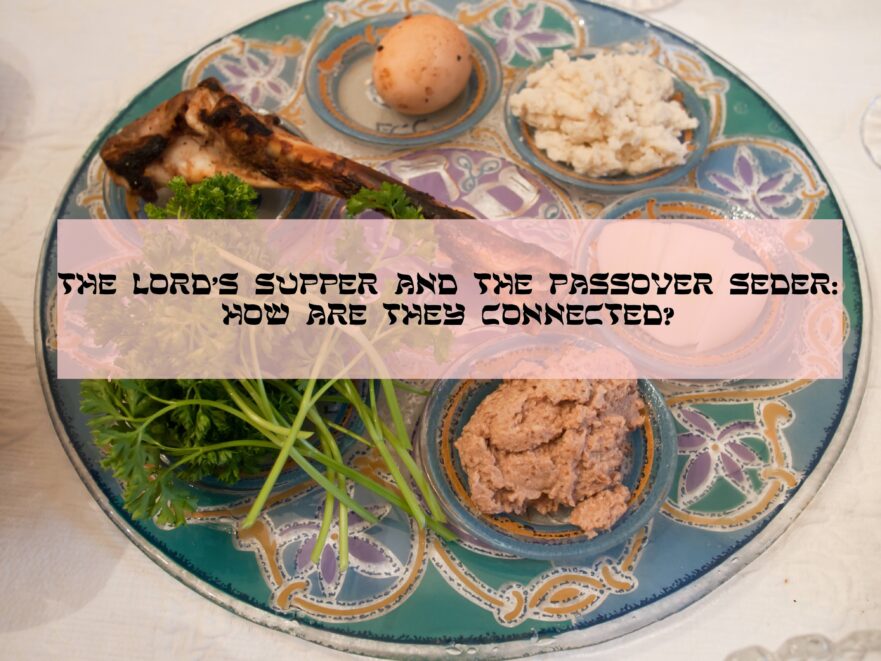

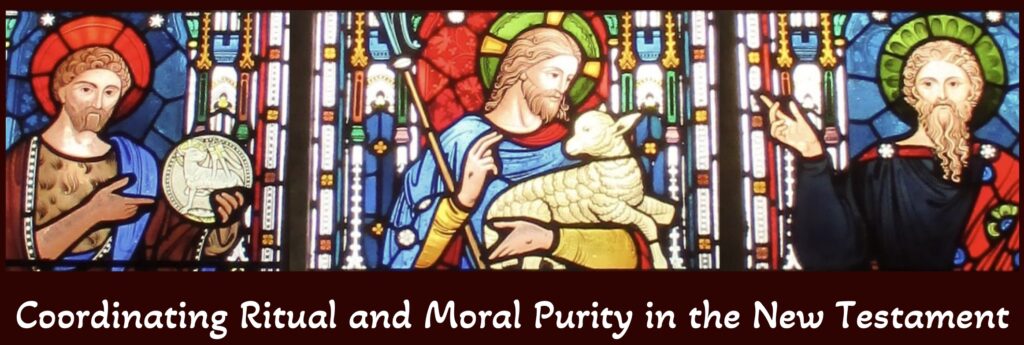
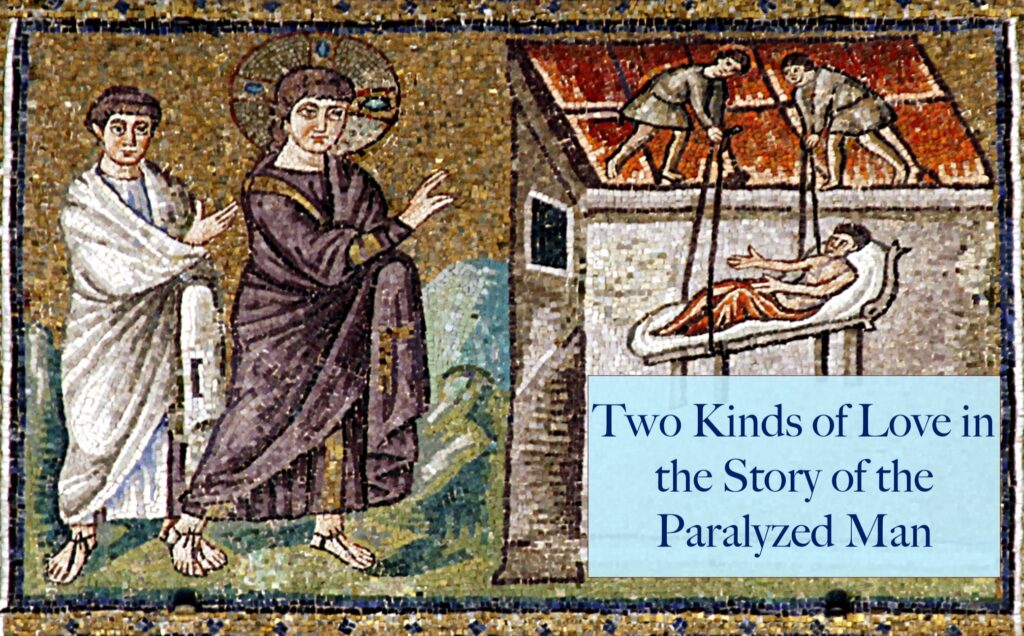

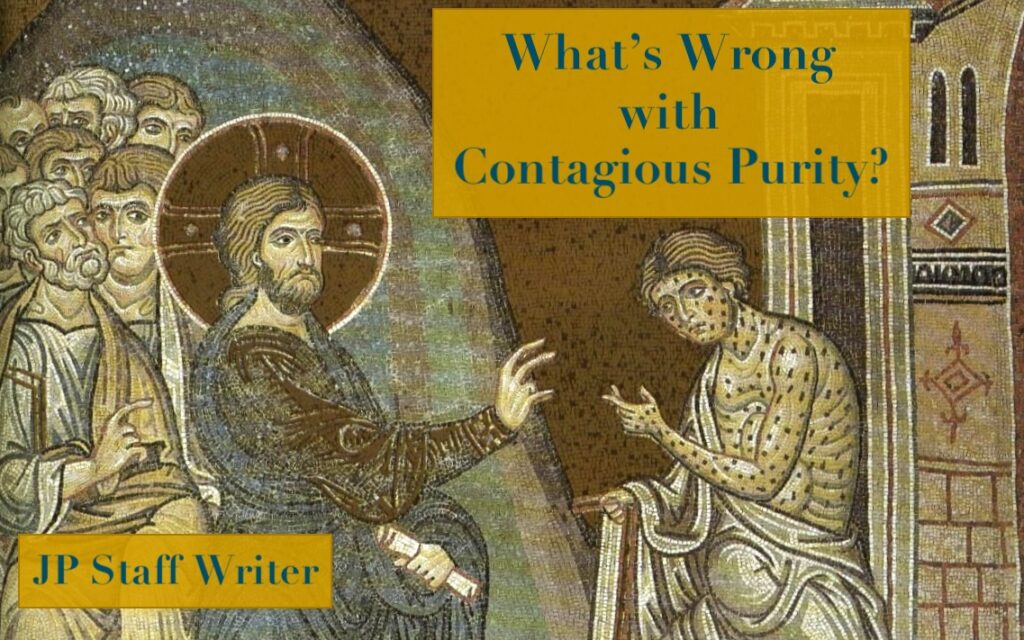
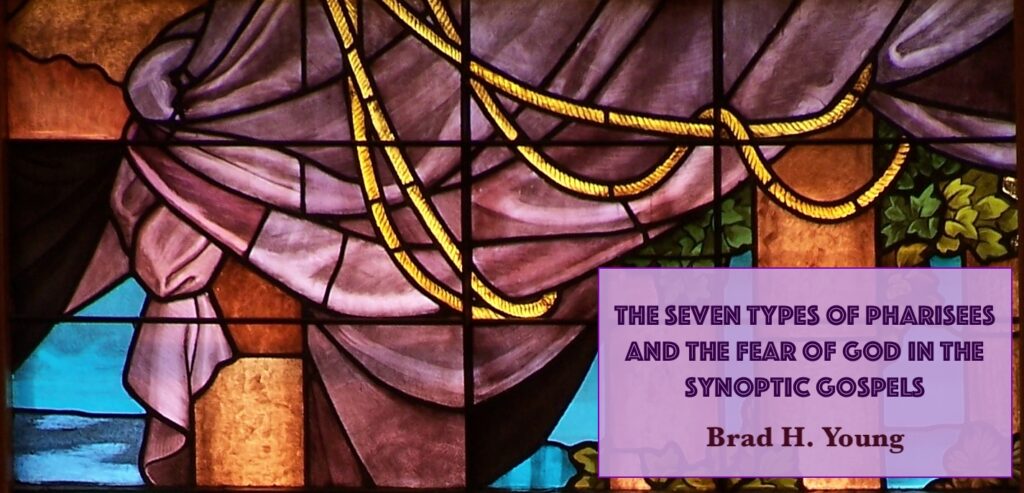
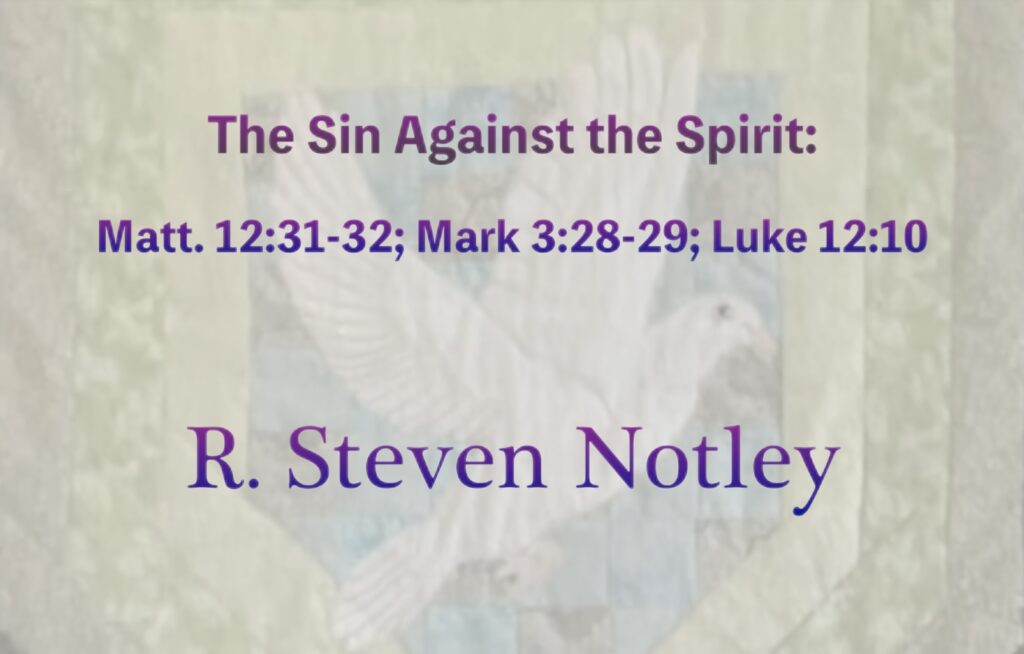
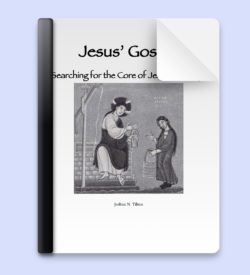
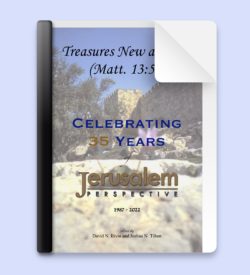
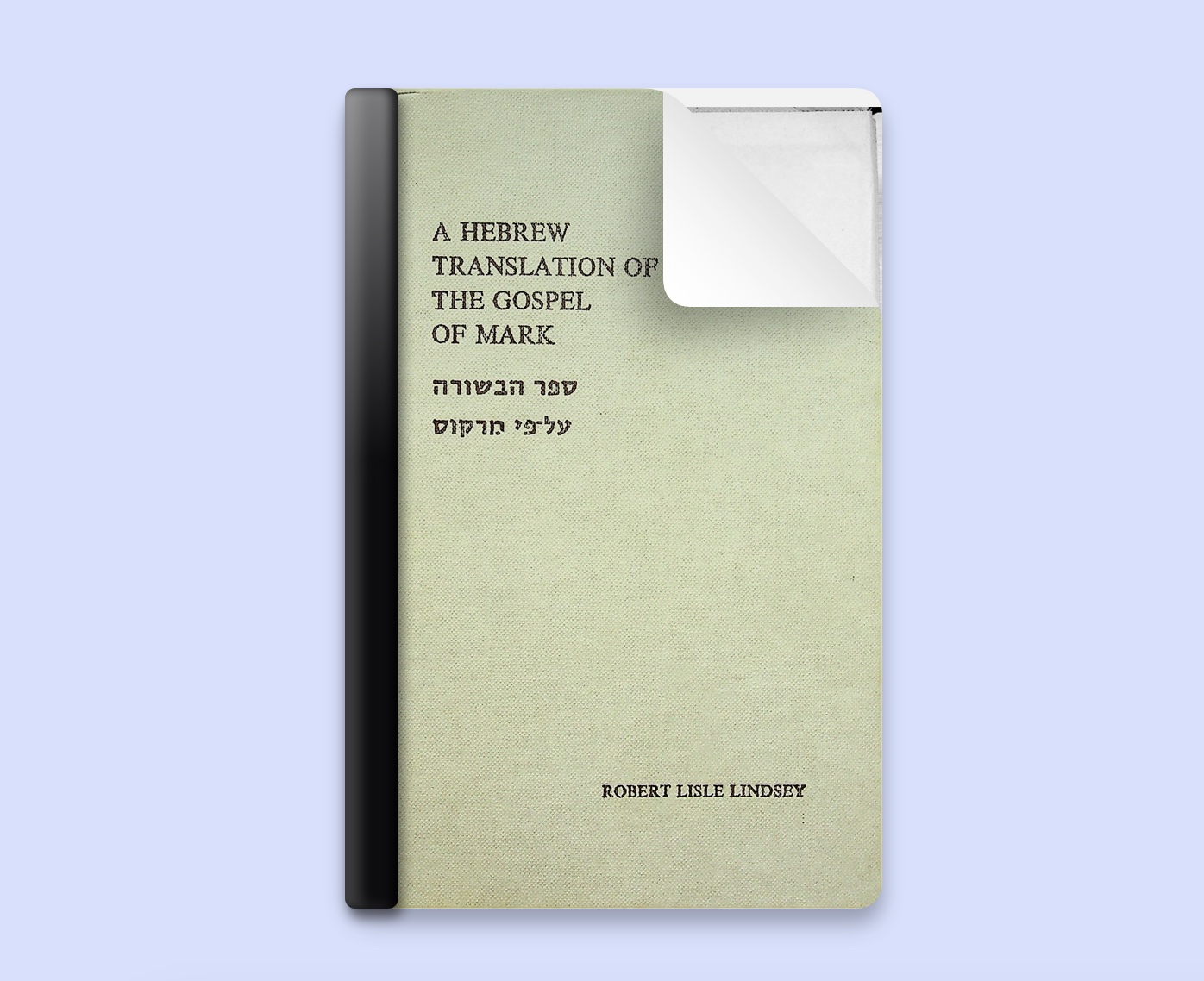































































































Comments 3
I’m a little concerned by your comment that John “tinkered” with the timeline to “portray Jesus as the ultimate Passover sacrifice.” That kind of reminds me of what Elihu asked Job. “Are you trying to put the blame on God in order to justify yourself?”
If we are going to allege an error in Scripture, especially a conscious fabrication such as you suggest, we better support it with lots of data. In particular, I am not aware of any conflicts with John’s timeline in the other Gospels. It’s not that he gives a different date for the Last Supper or the crucifixion. I think what happens is that he gives a detail that the other writers do not give. I have read a number of essays going over the issue with a fine-toothed comb, and I think in the final analysis what we have trouble with is pinpointing the day at all.
If you have better information, by all means tell me. But I think there’s no need to suggest that John was violating the unspoken code of historiography, and “making stuff up.” His readers would have caught him in any factual errors. I think, on the contrary, we need to examine ourselves and our thinking and find a common-sense explanation for this. “The Bible is an anvil that has worn out many hammers.”
I would really like to hear about this!! Please forward information you have on the topic!
“Another related topic is how Passover continued to be observed in the early Church. For a time, the annual celebration of Jesus’ death and resurrection was directly tied to the Jewish calendar and timing of Passover. But this is a more complicated matter and cannot detain us here.”
In the ancient world, sacrifice is a ritualized (meaning participation by all involved) meal with your god. It always involved food being offered to ‘feed’ that god so that the god would return benefits to the offerer. See John Walton’s “great symbiosis”.
In the Christian eucharist/sacrifice, this is flipped and God has offered Himself as food for the faithful. The benefits, grace, is injested by those faithful uniting themselves to God by their participation in His nature.
The Christian “great symbiosis” is in the covenant(s) God establishes with His people.